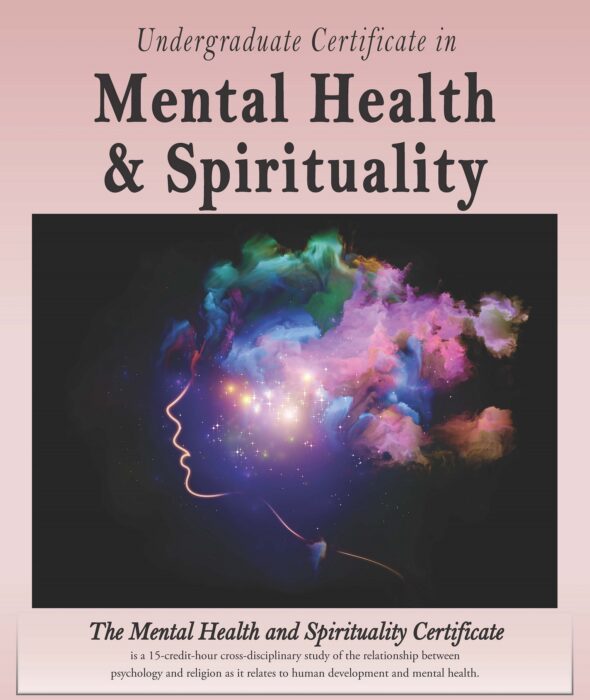Missouri State University has recently added a new Undergraduate Certificate in Mental Health and Spirituality to its curriculum. As one of the first such programs offered by an accredited university in the United States, this certificate combines coursework in Religious Studies and Psychology to offer students and professionals greater competency in relating these two fields in the service of promoting wellness. People who currently have or are seeking careers as providers professions such as psychologists, counselors, spiritual advisors, social workers, and nurses can expect to work with people whose lives are influenced by their spirituality and religious commitments.
Generally speaking, religious or spiritual beliefs are not adequately understood or explained by mental health practitioners. However, some researchers advocate increasing one’s comfort and competence in talking about religion and spirituality for those who work in mental health services. Developing a background in understanding the spiritual aspects and religious commitments that shape the lives of many people can be a valuable component to one’s training in mental health fields, including the emerging field of “holistic psychology.”
There is emerging research that links spiritual activity with improvements in mental health, reductions in anxiety, and improvements in post-traumatic recovery. Researchers are finding that certain spiritual beliefs and practices can help individuals to cope with stress and negative life events by allowing them to reframe them as beyond their control. Experiments on the effects of yoga and meditation practices have shown promising results to improve mental health. Some expressions of spirituality are helpful, but other aspects can lead to harmful feelings of guilt, shame, or powerlessness. A better understanding of obstacles to mental health and wellness due to religiously associated guilt and shame would also be helpful for providers.
The Undergraduate Certificate in Mental Health and Spirituality consists of 15 hours in Religious Studies and Psychology courses. It may be combined with an undergraduate Bachelor degree, or it can be obtained as a separated credential by those who have already earned a degree.
To learn more, visit https://www.missouristate.edu/RelSt/MentalHealthSpirituality/default.htm
or email: ReligiousStudies@missouristate.edu

